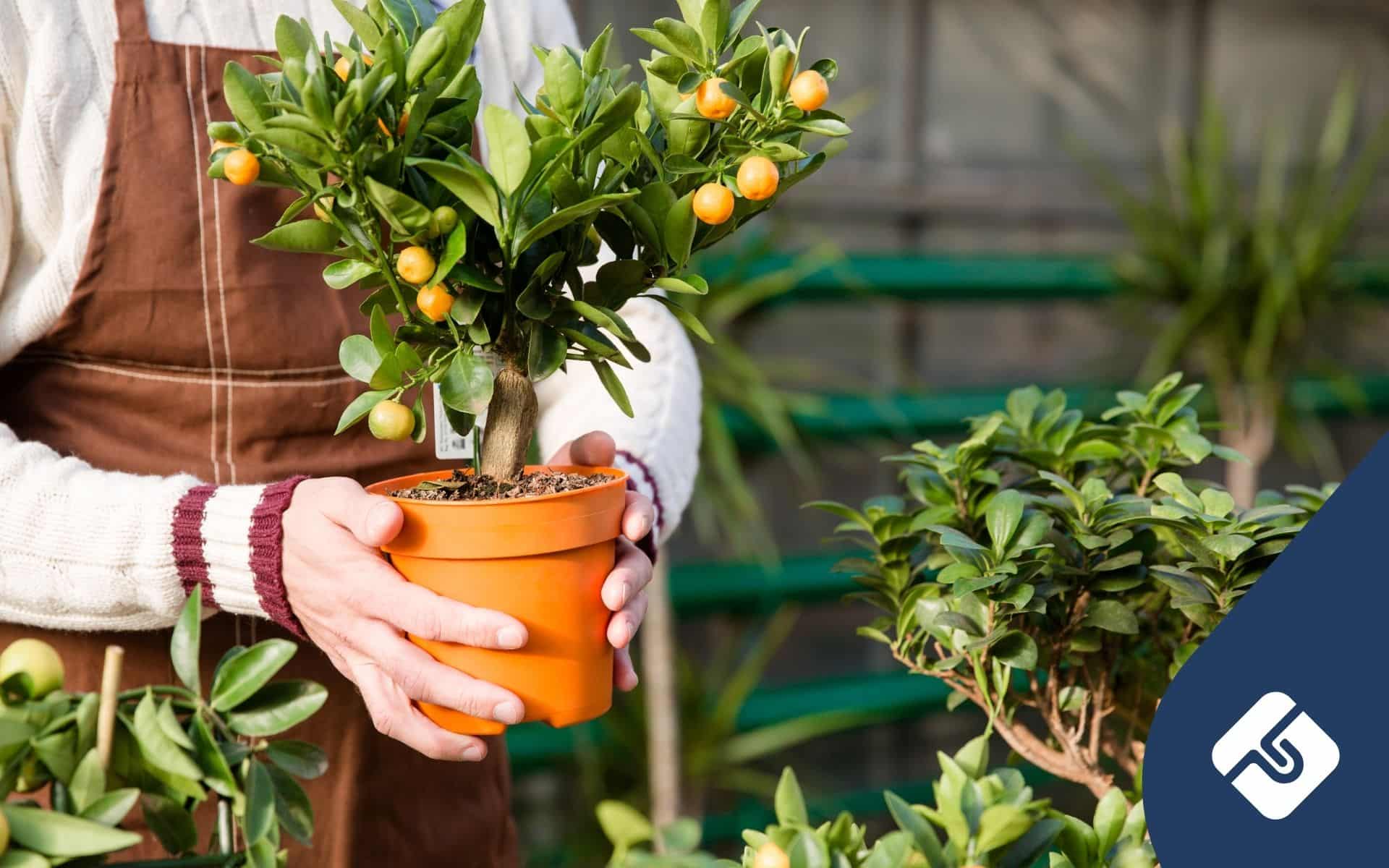Sydney-based lawyer, working in Corporate Advisory & M&A for Sparke Helmore Lawyer. Laura is passionate about how technology can assist in improving access to justice.
💡 Key insights
- Starting a gardening business in Australia typically costs between AUD 3,000 and 5,000 which makes it one of the most affordable service businesses to launch on a small budget.
- Basic gardening services such as mowing, pruning and weeding do not require a specific licence in Australia although advanced landscaping or tree removal may require state-based trade licences.
- Setting up a gardening business properly by registering an ABN, choosing a business name, securing public liability insurance and using written service agreements helps avoid legal issues and strengthens client trust.
- Many new gardening businesses grow quickly by tapping into low-cost local marketing channels including community groups and Google Business Profile which can generate early customers with minimal spend.
Do you have a passion for gardening and want to turn it into your career? Then you may be wondering how to start a gardening business in Australia.
Gardening can be an enjoyable hobby for some, while others find it a tedious chore. If set up correctly, your gardening business can be a great success. Plus, it’s an appealing way to turn your love for the outdoors into a flexible, profitable venture.
Of course, there is more to running your business than plant care; you need to consider legal and accounting aspects before you begin.
If you’re eager to start your own gardening business, there are a few things you should know. Our guide will walk you through everything from planning and licensing to marketing and legal compliance.
Table of Contents
Why gardening is a great low-cost business idea
Gardening is one of Australia’s most accessible small business ideas thanks to low startup costs and steady local demand. The Australian Gardening Services industry generated $4.1 billion in revenue in 2025, growing at 2.2% annually over the past five years. Demand continues to be fueled by retirees, time-poor homeowners, and a growing preference for outdoor living.
A typical low‑cost gardening business might begin with a $3,000–$5,000 setup — just a second‑hand mower, trimmer, a set of hand tools, and a trailer borrowed or purchased on a payment plan.
Plus, many part‑time operators pick up their first clients through local Facebook community groups or a simple Google Business Profile, taking on weekend or after‑hours lawn care jobs to build a portfolio before going full‑time.
Whether you’re a retiree seeking extra income or a hands-on entrepreneur, the barriers to entry are low, making it an ideal side hustle or full-time venture.
So, let’s take a look at the concrete steps you’ll need to take to get started!

Get on demand legal advice for one low monthly fee.
Sign up to our Legal Advice Plan and access professional legal advice whenever you need it.
Step 1 — Create a business plan that sets you up for success
While this isn’t the most exciting part, you should never underestimate the value of a solid business plan. A business plan is crucial when starting your business. It sets out your target market, goals, objectives, marketing strategies and where you see your business going.
When preparing your business plan, you should outline your profit projections to see how viable your venture will be. You should also anticipate any setbacks or issues you might encounter in your first year of operation and how you plan to tackle these.
Estimate your startup costs (and keep them lean)
The cost and return on investment section of your business plan is critical. Startup costs for a gardening business typically range between $3,000 and $10,000.
Here’s a rough breakdown:
| Expense | Estimated Cost (AUD) |
| Basic tools (mower, trimmer, blower) | $1,500–$3,000 |
| Trailer or ute setup | $1,000–$4,000 |
| Insurance | $500–$1,500 |
| Business registration | $100–$400 |
| PPE and uniforms | $200–$500 |
Remember that you don’t need to launch a huge business right away. Start small and focus on one niche (like lawn mowing or hedge trimming). Then, you can scale as your client base expands.

Get a fixed-fee quote from Australia's largest lawyer marketplace.
Step 2 — Choose the right business structure and register legally
Selecting the right business structure is one of the most important decisions when starting your gardening business. The structure you choose affects your tax obligations, personal liability, and ability to grow.
Common options for gardening businesses include:
- Sole Trader: The simplest and most affordable setup for individuals operating alone. You control the business and keep all profits, but are personally liable for debts.
- Partnership: A straightforward structure for two or more people sharing profits, responsibilities, and liabilities. That said, partners are jointly responsible for business debts.
- Company: Offers stronger legal protection and tax flexibility, as the business operates as a separate legal entity. However, it involves higher setup costs and compliance requirements.
If you’re unsure which structure to choose, try Lawpath’s free quiz: What Business Structure Is Right for You?

Legal Health Check for Small Business
Uncover your small business’ legal gaps in minutes with this award-winning tool.
Register your ABN and business name
No matter which structure you choose, you’ll need an Australian Business Number (ABN). Also, if you want to trade under a name other than your own, you’ll require a registered business name.
This quick process sets you up for invoicing, taxation, and legal recognition as an Australian business.
Do I need a licence to start a gardening business?
Most gardening services — such as mowing, pruning, weeding, and basic garden upkeep — don’t require a specific licence.
However, if your work extends to structural landscaping or tree removal, you may need a state-based trade licence. For example:
- NSW: Structural Landscaping licence required for projects worth over $5,000 (materials + labour).
- QLD: Landscaping licence required for work valued over $3,300.
- VIC: Registration required for structural landscaping projects exceeding $10,000.
By understanding these options and registering correctly, you’ll build a stronger legal foundation for your gardening business, ready to scale safely and confidently.

Start your ABN application in minutes!
Need an Australian Business Number to start a casual job? We've got you covered.
Step 3 — Get insured and protect your business
Accidents happen — insurance protects you against unexpected costs and liability. This is particularly important for a gardening business, as you will be using machinery such as mowers and leaf blowers.
Here are key insurance types you’ll need to set up before getting started.
- Public liability insurance: Covers damage to property or injury to clients.
- Equipment insurance: Protects your tools and machinery against theft or damage.
- Personal accident cover: Offers income protection if you’re injured and can’t work.
If you choose to hire employees, you will also need mandatory Workers’ Compensation Insurance. It covers you and your employees if they suffer a workplace injury or illness.
Protect your client relationships with contracts
Besides insurance, make sure that you are legally protected on all fronts. This means preparing a legally-binding service agreement to define the scope, payment, and cancellation terms of all your work.
Having the right paperwork from the start will protect your business in the long run!
Step 4 — Set up your finances and stay compliant
Managing your finances properly from day one helps ensure your gardening business remains profitable and compliant with Australian tax rules.
- Bookkeeping: Track income, expenses, and payments using accounting software like Xero, QuickBooks, or MYOB. Consistent record‑keeping also helps you claim every legitimate deduction during tax season (more on this below).
- Tax planning: Set aside around 25–30% of profits for tax to avoid unexpected bills. Even as a sole trader, it’s smart to pay quarterly instalments if your income rises quickly. Also, keeping personal and business accounts separate makes it easier to calculate your net earnings and GST obligations.
- GST registration: You must register for Goods and Services Tax (GST) once your turnover exceeds $75,000 per year. After registration, you’ll charge GST on your invoices and lodge Business Activity Statements (BAS), usually every quarter.
Common tax deductions for gardeners
You can claim a range of work‑related deductions, provided the expenses directly relate to earning income. Common deductible items for gardeners include:
- Tools and equipment such as mowers, trimmers, leaf blowers, and spades
- Repairs and maintenance on power tools and vehicles
- Fuel, oil, and travel between job sites (if carrying bulky equipment)
- Protective clothing, boots, gloves, sunscreen, and high‑visibility uniforms
- Business‑related phone and internet use
- Advertising, flyers, or software subscriptions for marketing
- Insurance premiums for Public Liability or Equipment Insurance
- Course fees or workshops related to horticulture or business management
- Home office expenses (if you handle quotes and bookings from home)
For example, many small operators claim sunglasses and sunscreen as legitimate outdoor protection costs.
Lawpath’s accountants can help you set up a tax‑ready bookkeeping system, ensuring you claim all eligible deductions while staying compliant with ATO record‑keeping requirements.
Step 5 — Source your equipment and keep costs manageable
As a gardening business, you will need to source your own equipment. These costs can add up, so it’s important to factor them in when planning your business set-up.
Choosing the right tools impacts safety and efficiency. Here’s a simple guide to essentials:
| Category | Essential Tools | Optional Upgrades |
| Lawn care | Mower, trimmer, rake | Ride-on mower, edging machine |
| Garden care | Shears, shovel, blower | Hedge cutter, aerator |
| Safety | Gloves, boots, ear/eye protection | Branded uniforms |
You can start with secondhand tools or lease equipment to reduce upfront costs. As your business grows, reinvest profits into better machinery or add-on services like fertilising or irrigation.
Remember that you can claim most costs related to tools and equipment against your tax bill!
Step 6 — Find your first clients and grow your customer base
As with any business, you need to acquire customers. A strategic marketing plan is crucial in this process, but you don’t need one immediately.
To start, you can put an advertisement in your local newspaper or do a letterbox drop around the neighbourhood introducing your business. Your first clients will likely come from your local community. You can build trust and visibility through:
- Flyers and letterbox drops.
- Google Business Profile and local SEO.
- Facebook groups, Nextdoor, or Gumtree ads.
Then, once your business takes off, think about key marketing tools like larger social media and a strong online presence. You can invest in a solid website with effective search engine optimisation, making sure that you have a robust privacy policy and usage terms in place.
Leverage referrals and partnerships
Word-of-mouth remains powerful in this industry. Partnerships with real estate agencies, strata managers, or NDIS providers also help secure long-term service contracts.
Ultimately, no marketing strategy can replace a strong community profile and a brand that customers trust. Protect your client relationships with Lawpath’s range of professional legal templates and build customer journeys that last.
Step 7 — Stay compliant as you scale
As your gardening business grows, compliance becomes more than a formality — it’s the foundation that keeps your operations safe, professional, and trusted. Whether you’re hiring employees, expanding into landscaping, or managing multiple clients, staying on top of your legal and safety responsibilities ensures your growth is smooth and sustainable.
Here’s a practical checklist to help you stay compliant:
ABN and business name registration: Ensure your registration details are up to date and linked to your current operations.
Public liability insurance: Protects against financial loss if property damage or injury occurs on a client’s site.
Safety and PPE compliance: Follow all relevant Work Health and Safety (WHS) guidelines, keeping records of inspections and training.
Employee or subcontractor contracts: Use clear agreements that meet Fair Work standards and define roles, pay, and responsibilities.
BAS and tax reporting: Lodge GST and BAS on time to avoid penalties.
Superannuation and payroll obligations: Make timely super payments and verify award compliance for all staff.
Data privacy and record-keeping: Protect client information under the Privacy Act 1988, and retain financial and employee records for at least seven years.
Licences and permits: Check renewal dates for any required local or state licences, particularly if your services expand into landscaping or tree removal.
In summary, compliance is not just about ticking boxes; it’s about safeguarding your business reputation and ensuring ongoing trust with clients and regulators.
As your gardening business scales, a proactive approach to compliance sets the groundwork for longevity and peace of mind.
FAQs
Q1. How much does it cost to start a gardening business in Australia?
On average, starting costs range from $3,000 to $10,000, covering tools, insurance, registration, and marketing. It’s one of Australia’s most affordable service-based businesses, ideal for first-time entrepreneurs.
Q2. Do I need qualifications or a licence to start a gardening business?
You don’t need formal qualifications for standard gardening work. However, landscaping or structural work (such as paving or retaining walls) may require state licensing.
Q3. Is a gardening business profitable in Australia?
Yes. Many gardeners earn $30–$60 per hour, depending on skills and area. Business owners can make $70,000–$95,000 annually once established. Profitability grows through ongoing maintenance contracts.
Q4. What insurance do I need for a gardening business?
At a minimum, you need Public Liability Insurance. If you hire staff, add Worker’s Compensation, and consider Equipment Insurance and Personal Accident Cover for extra protection.
Q5. Can I start a gardening business from home?
Yes. Most Australian gardeners start from home with a ute or trailer. Check local zoning and noise regulations before launching, but home-based setups are common and cost-effective.
Final thoughts — Grow with confidence
Starting a gardening business in Australia is an exciting, low-barrier opportunity. With clear planning, the right legal setup, and insured operations, you’ll be positioned for long-term success.
Start your gardening business today with Lawpath — register your ABN, secure your contracts, and grow with expert support.
Want more?
Sign up for our newsletter and be the first to find hand-picked articles on topics that we believe are crucial to successfully scale your unique small business.






